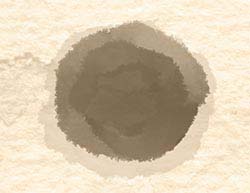Rennie Court
Words are dangerous. Like statistics, they are used to gain advantage and they are selected to prove the unproveable and to lie, if there be need. They are invented by cultures to spread particular propaganda, often to harm. They carry meanings that are from their inceptions prejudicial and unfair, too often. Words like primitive and barbaric and civilized have struck me recently as inaccurate and dangerous. They can be used without implying anything negative, but the first two are most often derogatory, when in fact they are neutral, at least according to their basic intent. They have come to connote of course, under sir able behavior or characteristics. Worse, under the definition of primitive, we find the word savage, no, not directly, there in the definition, but by strong indirection. The implication is clear: “to civilize is to bring out of savagery or barbarism into as tale characteristics of civilization.” To be primitive, according to the same dictionary, is to be “crude or uncivilized.” So a primitive society, by clear implication, is crude and savage. How misleading can language be! Oh, but we don’t automatically mean something bad when we say primitive. No, we mean to be patronizing, don’t we? Just as presumptuous and insidious: “It’s good, it’s really good, a little primitive, but beautiful, in it’s own way—isn’t it?” To civilize is to refine, educate, or enlighten. “A primitive person is “crude or uncivilized,” so to attempt to civilize him is to presume first that he is not refined or aware or worthy, according to our artificial standards: not living up to our standards. We are elevated, he is low. We say “Reduced circumstances, meaning not so much superfluous stuff,” usually savage means “wild” and “furious,” yet primitive peoples (uncorrupted, clear thinking, unmaterialistic, respectful of the planet, and all its harmonies, I mean) are called savages, though they are not at all mean or disorderly. We civilized folks, who write the definitions, are notoriously mean, and the most civilized nations have caused the worlds worst disorders, the pollution of the entire planet and worldwide genocide. Yet such nations think of themselves as civilizations, having “an advanced state in social development.” Advanced. What we call diplomacy is a game, a pernicious conspiracy, often a connivance, aimed at gaining advantage. It justifies its deceptions. It excuses lies. It defends its right to cheat, because it asserts, we are doing this for the greater good. Ours, of course. Ours is always proper. Killing itself is justified by diplomats, but not in public because that would be diplomatic. Hypocrisy is sometimes good, says the diplomat’s code ‘twas ever thus. This is an ancient “advanced” state of affairs. In bloodier and less honest times, the history books insist we were not so civilized. These days we don’t believe in genocide or assassination or conspiratorial overthrow of rival companies or national regimes, do we? No, we’ve advanced. Haven’t we?
